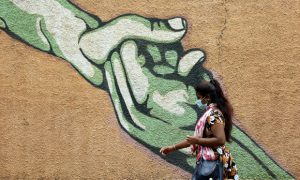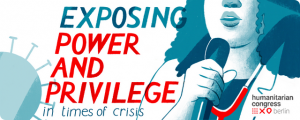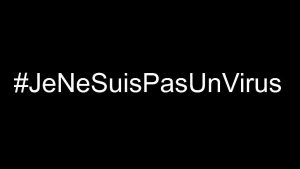 During my research for my blog content concerning public health in the digital era, I came across with Angus Deaton’s book[1]. The Great Escape: Health, wealth and the origin of inequality is originally the title of a film about people fleeing from a war camp during World War II. The Nobel Prize-winning writer and economist uses this in the context of how humanity “escapes” from, among other things, poverty and premature death, and how it creates prosperity for itself.
During my research for my blog content concerning public health in the digital era, I came across with Angus Deaton’s book[1]. The Great Escape: Health, wealth and the origin of inequality is originally the title of a film about people fleeing from a war camp during World War II. The Nobel Prize-winning writer and economist uses this in the context of how humanity “escapes” from, among other things, poverty and premature death, and how it creates prosperity for itself.
Author: LRebeka
Virtual Humanitarian Congress Berlin
 The Impossible Decisions: Triaging In A Pandemic session will take place on Friday 30 October, check back later for a summary!
Continue reading
The Impossible Decisions: Triaging In A Pandemic session will take place on Friday 30 October, check back later for a summary!
Continue reading Conspiracy theories, stigma, rumours and their great harm of reducing the success of prevention

We already talked a lot about the potential harms of digital technologies and how these factors impact populations, humanitarian actions, volunteers, and the field of development itself. The dissemination of (false) information is another element of the ICT debate. While news has the potential to reach everyone, one way or another, its implications on different communities are varied. In the current COVID-19 outbreak, the lack of appropriate risk communication and community engagement fail to counter social stigma and could reinforce health inequalities.
Is there equality in digital medical volunteering?

Over the last few decades, technological developments have impacted all aspects of life. This is also true in the case of the healthcare sector and development organizations. Communications strategies have been adapted, focusing on digital communication, incorporating various social media applications as well. Social media use facilitates building the image of an organization, creating a social identity, sharing achievements and demonstrating long-term goals and projects. Studies have argued that recruitment platforms should also strengthen online recruitment (as incorporated use of digital platforms in order to attract the most well-prepared and motivated young volunteers)[1] as Internet has become an important resource for involving and recruiting volunteers as well as creating various opportunities for participation[2].
Strengthening public awareness

Nowadays volunteering is becoming increasingly popular, which also involves projects in health care. The reasons behind volunteering are varied, from taking social responsibility, through gathering new competences till religious motivations. Similarly, the actual impact on local communities is mixed. It was explained earlier which factors we must consider if we wish to help. The lack of adequate knowledge, cultural sensitivity, and a comprehensive understanding of socio-economic characteristics of communities, unfortunately, can easily cause more harm than good. While avoiding economic harm, personal damage and diminishment of confidence should be the main precondition, volunteering in health care settings often requires medical diploma. In the meantime, there is an increasing focus on global health disparities, such as access to healthcare, health literacy, unaffordability of treatments, and ageing population.





